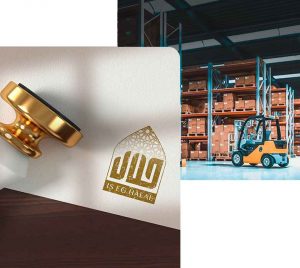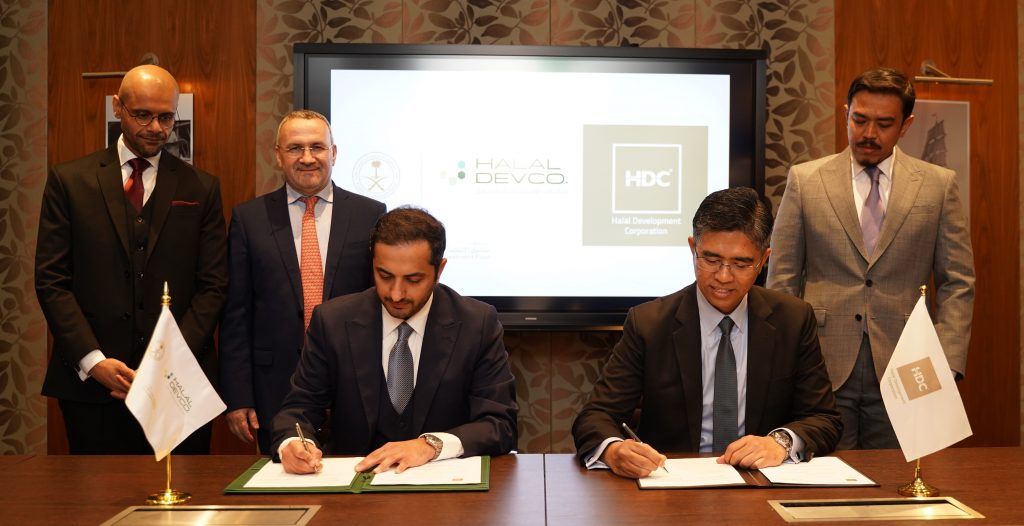BRUNEI’S bid for a major production number on the global stage for
halal products has put local SMEs in the spotlight as marketing experts
ponder the likelihood of the Sultanate becoming the birthplace of
future halal industry champions.
Speakers
and panelists during the closing session of the recently concluded
International Halal Market Conference (IHMC) 2009 deliberated on how
the global halal industry needs a champion to bring forward ethical and
moral values that form much of its foundations to a world recovering
from financial turmoil.
The IHMC 2009 ended last Sunday with
several significant initiatives launched to kick the national halal
agenda into high gear: Brunei’s first ever guidelines for Halal
standards in food manufacturing and pharmaceuticals, the
agro-technology park, the launch of Ghanim International Food
Corporation, and most importantly the unveiling of the Brunei Halal
Brand, considered the first of its kind in the world.
“What
interests me about the way Brunei is tackling this… is that we need
champions. We need heroes in the halal industry,” said Abdalhamid
Evans, senior analyst at Imarat Holdings and organiser of the annual
IHMC. “In terms of the halal market, you look at some of the biggest
corporations in the world and they are the biggest players in the
market but it’s fine, this is how the market has evolved.”
In
terms of re-engineering the dynamics of the halal industry, “it’s
extremely important that the Muslims play an increasingly influential
role not just in setting the standards, but also in defining the best
practices in terms of business. But Brunei is at a very interesting
stage it’s not about being the biggest for Brunei, it’s about being the
best,” said Abdalhamid.
Tina Jamaluddin, corporate marketing
general manager of Malaysian firm Prima Agri Products and one of the
panellists for the IHMC 2009’s closing open panel discussion, said that
with market-driven pressure facing the SMEs (small and medium
enterprises) now that the Brunei Halal brand has been launched, it
could make for a slight disadvantage for local enterprises.
“It’s
still new and yet from infancy they want to go straight to university
because everyone’s saying that they have to get their act together and
that Brunei is a Muslim country so it has to be on the forefront.
Unfortunately the industry is still at its infancy and they feel like
the SMEs aren’t moving along fast enough, but at the same time you have
to look at giving them more time,” said Tina, who also presented a talk
on “Turning SMEs into Halal Champions” during the two-day conference.
Noel
Shield, interim CEO of Ghanim, the joint-venture firm that will take
the products under the Brunei Halal brand to the international market,
said the two potential clusters of growth for Brunei halal industry
will be provided with assistance as the brand takes off.
Much
of Brunei’s food manufacturing sector consists of cottage industries,
or those producing out of homes. While Ghanim works with the
export-ready SMEs to increase their competitiveness in the
international arena, Noel said it will simultaneously work with the
cottage industry to lift their status into semi-manufacturers.
Abdalhamid
has said in previous interviews there have been talks of building a
single international standards-compliant facility that these small
enterprises can use to manufacture their products.
Tina, who has
been an instrumental figure in dealing with various government agencies
to develop incentives and grants for Malaysian SMEs, said grants and
incentives have proven integral to the success of Malaysia’s SME
development programmes and in other countries.
However, Noel
stressed to the local manufacturers that they must be able to
economically sustain by themselves before approaching the government
for more loans.
“They can’t afford to go back to the government for assistance all the time,” he said.
The
global halal industry needs a hero or a champion be it SMEs or big-time
businesses to set the trend, stressed Abdalhamid.
“Theoretically
they know best (about halal), but at this stage I think there’s an
awful lot that Muslims can learn from a lot of the movements that are
going on in the West. By putting strongly-held beliefs into action, you
actually can create a very powerful and influential movement in the
market, whether it’s a corporate movement, a social movement or just
kind of doing good.”
The Brunei Times


